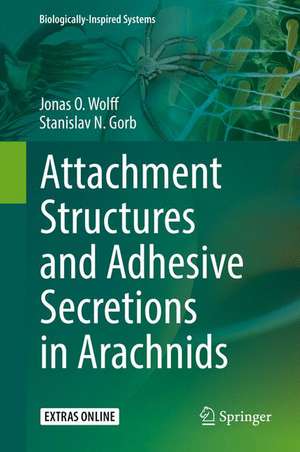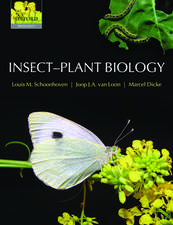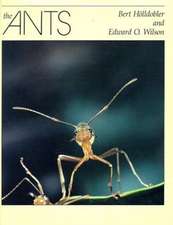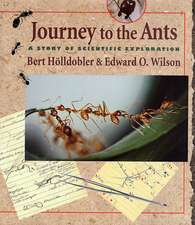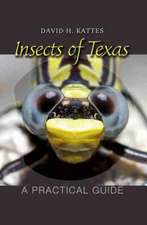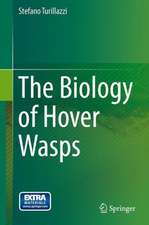Attachment Structures and Adhesive Secretions in Arachnids: Biologically-Inspired Systems, cartea 7
Autor Jonas O. Wolff, Stanislav N. Gorben Limba Engleză Hardback – 21 dec 2016
| Toate formatele și edițiile | Preț | Express |
|---|---|---|
| Paperback (1) | 775.88 lei 38-44 zile | |
| Springer International Publishing – 12 iul 2018 | 775.88 lei 38-44 zile | |
| Hardback (1) | 945.79 lei 43-57 zile | |
| Springer International Publishing – 21 dec 2016 | 945.79 lei 43-57 zile |
Preț: 945.79 lei
Preț vechi: 1153.39 lei
-18% Nou
Puncte Express: 1419
Preț estimativ în valută:
180.97€ • 189.46$ • 149.75£
180.97€ • 189.46$ • 149.75£
Carte tipărită la comandă
Livrare economică 07-21 aprilie
Preluare comenzi: 021 569.72.76
Specificații
ISBN-13: 9783319457123
ISBN-10: 3319457128
Pagini: 249
Ilustrații: XII, 184 p. 57 illus., 38 illus. in color.
Dimensiuni: 155 x 235 x 13 mm
Greutate: 0.45 kg
Ediția:1st ed. 2016
Editura: Springer International Publishing
Colecția Springer
Seria Biologically-Inspired Systems
Locul publicării:Cham, Switzerland
ISBN-10: 3319457128
Pagini: 249
Ilustrații: XII, 184 p. 57 illus., 38 illus. in color.
Dimensiuni: 155 x 235 x 13 mm
Greutate: 0.45 kg
Ediția:1st ed. 2016
Editura: Springer International Publishing
Colecția Springer
Seria Biologically-Inspired Systems
Locul publicării:Cham, Switzerland
Cuprins
1. Overview.- 2. Mechanical attachement devices.- 3. Tape- and spatulate-shaped microstructures.- 4. Nano-Fibril.- 5. Mushroom-shaped microstructures.- 6. Suction cups.- 7. Soft adhesive tapes.-8./ Adhesive secretions.- 9. Biological function and evolutionary aspects.- 10. Comparative contact mechanics.- 11. Biomimetics: What can we learn from arachnids?.
Notă biografică
Textul de pe ultima copertă
This book surveys attachment structures and adhesive secretions occurring in this class of animals and discusses the relationships between structure, properties, and function in the context of evolutionary trends, and biomimetic potential. Topics comprise mechanical attachment devices, such as clamps, claws, hooks, spines and wraps, as well as hairy and smooth adhesive pads, nano-fibrils, suction cups, and viscid and solidifying adhesives. Attachment is one of the major types of interactions between an organism and its environment. There are numerous studies that deal with this phenomenon in lizards, frogs, insects, barnacles, mussels and echinoderms, but the second largest class of animals, the Arachnida, was highly neglected so far. The authors demonstrated that most arachnid adhesive structures are highly analogous to those of insects and vertebrates, but there are also numerous unique developments with some intriguing working principles. Because arachnid attachment organs havea very strong potential of technological ideas for the development of new materials and systems, inspirations from biology could also be interesting for a broad range of topics in materials and surface engineering.
Caracteristici
First overview on attachment devices and adhesive secretions in Arachnida, from mechanical devices, such as claws and clamps, to adhesive pads, suckers and glue Includes both a thorough literature review and original data. Discusses the topic from structural, physical to evolutionary aspects, and biomimetic potential Well illustrated with 57 figures and 46 supplemental videos
